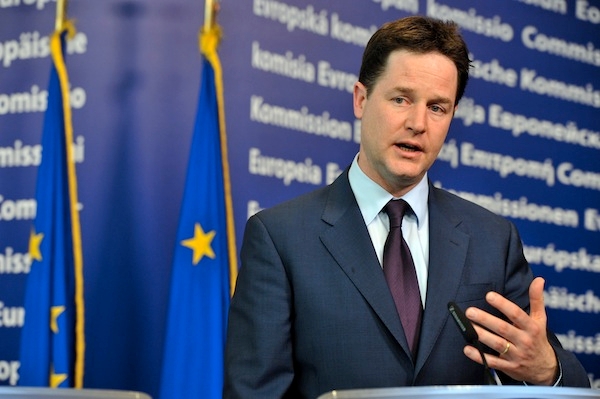Today’s Financial Times paints a poor picture for pro-Europeans: half of those polled want to leave the EU and just a third want to remain in. Plus, 41 per cent of those in favour of a Brexit will ‘definitely’ vote no even after a renegotiation, which suggests a tough challenge for the In campaign to swing some opinions. However, it’s also worth noting that the EU only ranks 15th on the FT’s list of important issues; healthcare and education are at the top of the list, with immigration coming in at eighth.
YouGov has recently carried out some polling on immigration, with some interesting findings in the European context. When questioned on the rights of EU citizens to work in other member states, just over half stated that it is a ‘bad thing and it would be better if the rules were change’. 70 per cent also stated that the rules are not tough enough regarding immigration inside the European Union — compared to 73 per cent from countries outside the EU. On Bulgarian and Romanian migrants, just under half believe their citizens shouldn’t have the right to live and work in the UK, compared to 20 per cent who state there is nothing wrong with Britain welcoming the new citizens.
These frustrations create both a problem and an opportunity for Nick Clegg. As James reported in his political column last week, a (delayed) repositioning speech on immigration is in preparation:
‘Nick Clegg is currently preparing a big speech on immigration; it would have been given last week but for the Eastleigh by-election. He wants to address the fact that even those voters with an open mind towards his party, view it as soft on immigration. In 2015, there’ll be no repeat of the last manifesto’s promise of earned amnesty for illegal immigrants. But some in the Clegg circle want to go further than that. One influential member of it has come to the view that transition controls on new EU members, which limit the right of free movement, should last for 20 years not seven. This wonk suggests that if Turkey ever did join, then transition controls would have to be based on per capita GDP to prevent an unsustainable level of immigration.’
The polling above shows the scale of voter discontentment; and Britain’s relationship with the EU looks set to change regardless of any renegotiation’s outcome. Clegg has much to gain with the electorate by repositioning his party’s stances on both Europe and immigration.






Comments